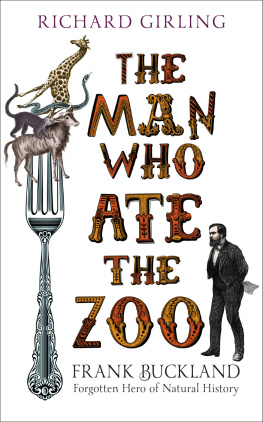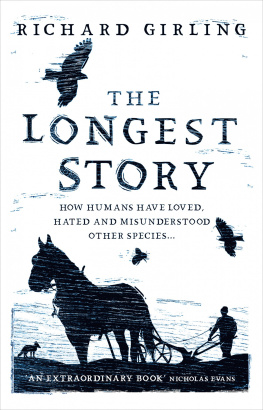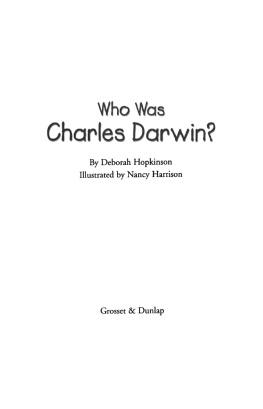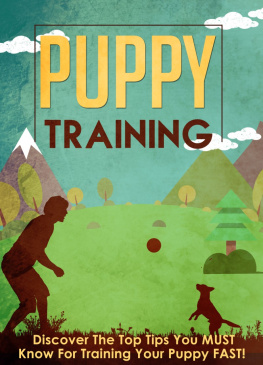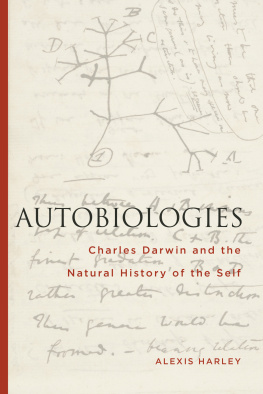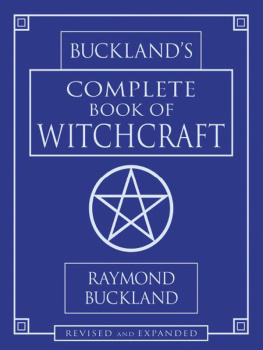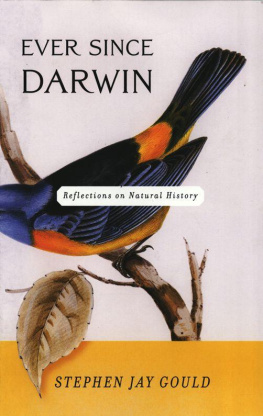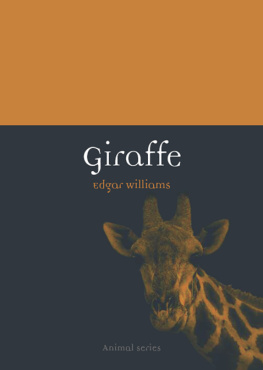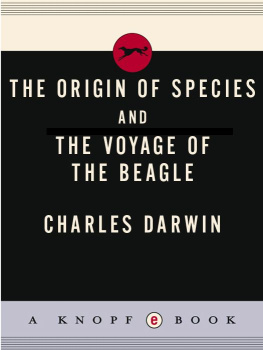AFTERWORD
If I felt any regret during the writing of The Man Who Ate the Zoo, it was that I was unable to flesh out the character of Hannah Buckland. She emerges from her husbands story as a supportive, perhaps even long-suffering wife who, by the standards of the time, was well treated by the father of her illegitimate son. Franks marriage to her after the premature death of poor little Physie is a testament at least to Franks sense of responsibility by no means the norm among Victorian men who impregnated socially inferior girls though there is little suggestion of romantic love. My Dear Wife and Your affectionate husband are fairly low down on the spectrum of passion. In return for his affection, Hannah seems to have been a more than usually supportive wife unfazed by Franks erosion of the boundary between home and menagerie, or order and chaos.
I had not known when I wrote the book that Hannah had a sister, Emma, whose life ran on a similar track to Hannahs own. According to her great-granddaughter Mary Pritchard, who has kindly written to me about her, she too married well. Given the family connections, it was perhaps no great surprise that she should marry another contributor to Land & Water, Charles Bayly, and that she should live near her sister in Albany Street. It is to Emma that we owe the survival of what, to modern eyes, is an extraordinary letter from Frank to his wife, written on the headed notepaper of the Salmon Fisheries Office, 4 Old Palace Yard, Westminster, SW. It is addressed to Mrs F Buckland, 37 Albany St, Regents Park, dated 2 March 1872, and marked Private.
My Dear Wife,
I have this morning dictated the terms of my will to my friend & legal adviser Bennett.
I think it right to tell you that I have left you everything except my museum all my property in fact between six & seven thousand pounds altogether.
In the case of my death you will have about 400 a year. If you wish to leave me you will have the same. I have so ordered the will that if you marry after my death your future husband will not be able to rob you. I wish you to put this letter carefully away in case my will is disputed. I hope to sign it next Wednesday.
Your affectionate husband
Frank Buckland
Show this to no body
It is impossible to know what was the likelihood of Hannah feeling any wish to leave her husband, but it is hard to believe that this was the kind of dispensation commonly extended to Victorian wives. Questions abound. Frank did nothing without a reason. Perhaps he did not want her to feel, and did not want to feel himself, that she was bound to him by money alone a somewhat backhanded declaration of love. Perhaps he wanted her to leave. One might wonder why no more children were born after the loss of Physie. Or perhaps there was something else on his mind altogether. Whatever it was, there is no evidence that Hannah ever took advantage of the offer. Neither is it clear why Frank feared the will might be challenged. By whom? There were no dependent relatives, and no evidence of creditors. Perhaps the subsequent embezzlement of part of the sum he had left in trust to the Director and Assistant Director of the South Kensington Museum indicates a possible target for his suspicions. We will never know.
I thank Mary Pritchard also for her revelation that the familys animal eccentricity did not die with Frank in Albany Street. In a distinct echo of Christ Church pond, Marys own father and his twin sister kept the tradition going with pet alligators. I am grateful also to Franks great-nephew, the childrens author Roderick Gordon (great-grandson of William Bucklands daughter/biographer Elizabeth Oke Gordon and, as it turns out, a near neighbour of mine in Norfolk) for revealing the existence of his own collection of papers and memorabilia from his great-great-grandfather William Buckland, Franks father. Here again, family traditions clung on. From a very early age, Roderick was taken by his father on Buckland-style fossil forages along the south coast, and regaled with stories of Franks singular tastes in meat and fish. Influences from William and Franks lives duly found their way into the Tunnel series of books for young adults which Roderick co-wrote with Brian Williams. What better name could there have been for a subterranean slave-race than William Bucklands gift to the scientific lexicon, Coprolites?
Acknowledgements
THERE IS NO better way to reassure yourself of the innate generosity of your fellow humans than to embark on a book and ask for advice. Even after long and grateful experience I continue to be amazed by the lengths to which people will go to help a complete stranger find a reference, confirm a fact or locate a picture. Some of those who gave their time were lifelong Buckland enthusiasts; others had never heard of him. It made no difference to their willingness to help, and this book would have been a lot more difficult to write, and a lot worse in its execution, without them. I would like to thank in particular:
Michael Hellyer, Archivist, St Martin-in-the-Fields; Suzanne Foster, Archivist, Winchester College; Emma Anthony, Project Archivist, and Fahema Begum, Assistant Archivist, Royal College of Surgeons; Linda Fitzpatrick, Curator, Scottish Fisheries Museum; John Firn, Clerk, and Richard Shelton, former Chairman of Trustees, the Buckland Foundation; Sarah Pearson, Carina Phillips and Bruce Simpson, Curators, Hunterian Museum, Royal College of Surgeons; The Very Revd Dr John Hall, Dean of Westminster; and Oliver Riviere, without whose expertise I would have been unable to reproduce many of the pictures.
My thanks go to my agent, Jonathan Pegg, for a magnificent lunch, limitless enthusiasm and bold encouragements; to Poppy Hampson at Chatto for commissioning and editing the book with all her customary skill and sensitivity; and to my copy-editor, Katherine Fry, for her work with dustpan and brush, whisking away repetitions, obfuscations and howlers.
Of my wife, Caroline, I can say only that she is a gift far beyond the scope of thanks.
ALSO BY RICHARD GIRLING
Fiction
Ielfstans Place
Spriggs War
Non-fiction
The View from the Top: A Panoramic Guide to Reading
Britains Most Beautiful Vistas
Rubbish!: Dirt on our Hands and Crisis Ahead
Sea Change: Britains Coastal Catastrophe
Greed: Why We Cant Help Ourselves
The Hunt for the Golden Mole: All Creatures Great and Small, and Why They Matter
About the Author
Richard Girling is an award-winning environmental journalist. For his work in the Sunday Times he has been named Specialist Writer of the Year in the UK Press Awards. He was Journalist of the Year at the Press Gazette Environmental Press Awards in 2008 and 2009. His most recent book, The Hunt for the Golden Mole, was highly praised: This is a book that bursts into life from the first page Rousing, fascinating Utterly engaging. Sunday Times
About the Book
Frank Buckland was an extraordinary man surgeon, naturalist, veterinarian, popular lecturer, bestselling writer, museum curator, and a conservationist before the concept even existed.
Eccentric, revolutionary, prolific, he was one of the nineteenth centurys most improbable geniuses. His life-long passion was to discover new ways to feed the hungry. Rhinoceros, crocodile, puppy-dog, giraffe, kangaroo, bear and panther all had their chance to impress, but what finally and, eventually, fatally obsessed him was fish. He can be justly regarded as the godfather of fish-farming and the progenitor of marine research and fishery protection. Forgotten now, he was one of the most original, far-sighted and influential natural scientists of his time, held as high in public esteem as his great philosophical enemy, Charles Darwin.

